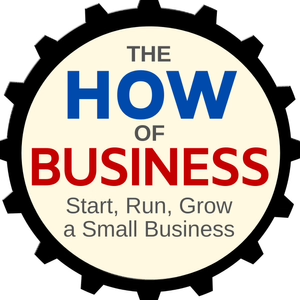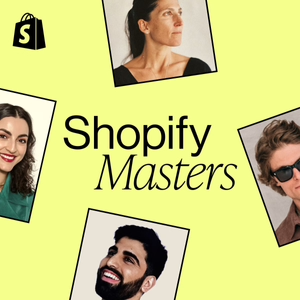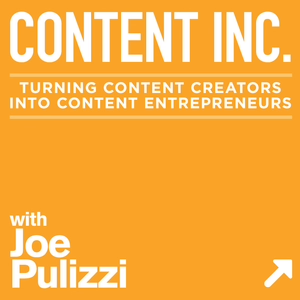
#297 Yvon Chouinard (Patagonia)
04/03/23 • 59 min
1 Listener
What I learned from rereading Let My People Go Surfing: The Education of a Reluctant Businessman by Yvon Chouinard.
----
Get access to the World’s Most Valuable Notebook for Founders at Founders Notes
----
Follow Founders Podcast on YouTube
----
Follow one of my favorite podcasts Invest Like The Best !
----
[3:45] One of my favorite sayings about entrepreneurship is: If you want to understand the entrepreneur, study the juvenile delinquent. The delinquent is saying with his actions, “This sucks. I’m going to do my own thing.”
[4:32] The original intent for writing Let My People Go Surfing was for it to be a philosophical manual for the employees of Patagonia. We have always considered Patagonia an experiment in doing business in unconventional ways.
[7:48] MeatEater Podcast #188 Yvon Chouinard on Belonging to Nature
[7:55] The first part of our mission statement, “Make the best product,” is the cornerstone of our business philosophy. “Make the best” is a difficult goal. It doesn’t mean “among the best” or the “best at a particular price point.” It means “make the best,” period.
[9:58] When I die and go to hell, the devil is going to make me the marketing director for a cola company. I’ll be in charge of trying to sell a product that no one needs, is identical to its competition, and can’t be sold on its merits. I’d be competing head-on in the cola wars, on price, distribution, advertising, and promotion, which would indeed be hell for me. I’d much rather design and sell products so good and unique that they have no competition.
[14:32] We were like a wild species living on the edge of an ecosystem: adaptable, resilient, and tough.
[14:49] I believe the way towards mastery of any endeavor is to work towards simplicity. The more you know, the less you need.
[15:49] The Little Prince by Antoine de Saint-Exupéry
[17:59] Complexity is often a sure sign that the functional needs have not been solved. Take the difference between the Ferrari and the Cadillac of the 1960s. The Ferrari’s clean lines suites its high-performance aims. The Cadillac really didn’t have any functional aims. It didn’t have steering, suspension, aerodynamics, or brakes appropriate to its immense horsepower. All it had to do was convey the idea of power, creature comfort, of a living room floating down the highway to the golf course. So, to a basically ugly shape were added all manner of useless chrome: fins at the back, breasts at the front. Once you lose the discipline of functionality as a design guidepost, the imagination runs amok. Once you design a monster, it tends to look like one too.
[21:29] Shoe Dog: A Memoir by the Creator of Nike by Phil Knight. (Founders #186)
[28:02] Becoming Trader Joe: How I Did Business My Way and Still Beat the Big Guys by Joe Coulombe. (Founders #188)
[28:55] There are different ways to address a new idea or project. If you take the conservative scientific route, you study the problem in your head or on paper until you are sure there is no chance of failure. However, you have taken so long that the competition has already beaten you to market. The entrepreneurial way is to immediately take a forward step and if that feels good, take another, if not, step back. Learn by doing, it is a faster process.
[31:33] Can a company that wants to make the best-quality outdoor clothing in the world be the size of Nike? Can a ten-table, three-star French restaurant retain its third star when it adds fifty tables? The question haunted me throughout the 1980s as Patagonia evolved.
[35:47] I was still wondering why I was really in business.
[38:17] We had to begin to make all of our decisions as though we would be in business for a hundred years.
[39:02] Made in Japan: Akio Morita and Sony by Akio Morita. (Founders #102)
[39:13] Jeff Bezos on what he learned from Akio Morita and how it influenced the building of Amazon:
"Right after World War II, Akio Morita, the guy who founded Sony, made the mission for Sony that they were going to make Japan known for quality.
And you have to remember, this was a time when Japan was known for cheap, copycat products. And Morita didn’t say we’re going to make Sony known for quality. He said we’re going to make Japan known for quality.
What I learned from rereading Let My People Go Surfing: The Education of a Reluctant Businessman by Yvon Chouinard.
----
Get access to the World’s Most Valuable Notebook for Founders at Founders Notes
----
Follow Founders Podcast on YouTube
----
Follow one of my favorite podcasts Invest Like The Best !
----
[3:45] One of my favorite sayings about entrepreneurship is: If you want to understand the entrepreneur, study the juvenile delinquent. The delinquent is saying with his actions, “This sucks. I’m going to do my own thing.”
[4:32] The original intent for writing Let My People Go Surfing was for it to be a philosophical manual for the employees of Patagonia. We have always considered Patagonia an experiment in doing business in unconventional ways.
[7:48] MeatEater Podcast #188 Yvon Chouinard on Belonging to Nature
[7:55] The first part of our mission statement, “Make the best product,” is the cornerstone of our business philosophy. “Make the best” is a difficult goal. It doesn’t mean “among the best” or the “best at a particular price point.” It means “make the best,” period.
[9:58] When I die and go to hell, the devil is going to make me the marketing director for a cola company. I’ll be in charge of trying to sell a product that no one needs, is identical to its competition, and can’t be sold on its merits. I’d be competing head-on in the cola wars, on price, distribution, advertising, and promotion, which would indeed be hell for me. I’d much rather design and sell products so good and unique that they have no competition.
[14:32] We were like a wild species living on the edge of an ecosystem: adaptable, resilient, and tough.
[14:49] I believe the way towards mastery of any endeavor is to work towards simplicity. The more you know, the less you need.
[15:49] The Little Prince by Antoine de Saint-Exupéry
[17:59] Complexity is often a sure sign that the functional needs have not been solved. Take the difference between the Ferrari and the Cadillac of the 1960s. The Ferrari’s clean lines suites its high-performance aims. The Cadillac really didn’t have any functional aims. It didn’t have steering, suspension, aerodynamics, or brakes appropriate to its immense horsepower. All it had to do was convey the idea of power, creature comfort, of a living room floating down the highway to the golf course. So, to a basically ugly shape were added all manner of useless chrome: fins at the back, breasts at the front. Once you lose the discipline of functionality as a design guidepost, the imagination runs amok. Once you design a monster, it tends to look like one too.
[21:29] Shoe Dog: A Memoir by the Creator of Nike by Phil Knight. (Founders #186)
[28:02] Becoming Trader Joe: How I Did Business My Way and Still Beat the Big Guys by Joe Coulombe. (Founders #188)
[28:55] There are different ways to address a new idea or project. If you take the conservative scientific route, you study the problem in your head or on paper until you are sure there is no chance of failure. However, you have taken so long that the competition has already beaten you to market. The entrepreneurial way is to immediately take a forward step and if that feels good, take another, if not, step back. Learn by doing, it is a faster process.
[31:33] Can a company that wants to make the best-quality outdoor clothing in the world be the size of Nike? Can a ten-table, three-star French restaurant retain its third star when it adds fifty tables? The question haunted me throughout the 1980s as Patagonia evolved.
[35:47] I was still wondering why I was really in business.
[38:17] We had to begin to make all of our decisions as though we would be in business for a hundred years.
[39:02] Made in Japan: Akio Morita and Sony by Akio Morita. (Founders #102)
[39:13] Jeff Bezos on what he learned from Akio Morita and how it influenced the building of Amazon:
"Right after World War II, Akio Morita, the guy who founded Sony, made the mission for Sony that they were going to make Japan known for quality.
And you have to remember, this was a time when Japan was known for cheap, copycat products. And Morita didn’t say we’re going to make Sony known for quality. He said we’re going to make Japan known for quality.
Previous Episode

A conversation with David and Ben from the Acquired podcast
David Rosenthal and Ben Gilbert — of the Acquired podcast — invited me to San Francisco for a discussion on our mutual obsession: spending every waking hour studying the history of entrepreneurship and sharing those lessons on our podcasts.
----
Follow Acquired in your podcast player here or at Acquired.fm
This episode is brought to you by: Tiny: Tiny is the easiest way to sell your business. Tiny provides quick and straightforward exits for Founders. Get in touch with Tiny by emailing [email protected].
[3:00] David’s time with Charlie Munger
[5:30] Henry Flagler after Standard Oil
[8:30] What makes a great biography, and how to capture all sides of complex characters?
[11:00] Studying history is a form of leverage to achieve success
[13:00] How do we figure out what the true story is for an episode we're doing?
[20:30] Silicon Valley should focus more on durability than growth
[21:30] How David got into reading biographies and podcasting
[25:40] What were each of their influences before starting Acquired and Founders?
[35:30] How to suck less over time
[37:30] What motivates, Ben, David, and David to get better?
[45:00] Dead ends: business model changes, paid podcasts, changing the name to “Adapting”, and Senra's “Autotelic”
[51:30] “You’re not advertising to a standing army, you’re advertising to a moving parade”
[56:00] Comparison of podcasting business models
[1:00:10] Senra’s insane Readwise "healthy twitter" habit
[1:04:30] Is it possible for the ultra-wealthy not to mess up their kids?
[1:14:30] The fleeting moments you get to spend with your kids
[1:17:00] The value of building relationships with best-in-class peers
[1:19:30] How the book publishing industry works
[1:28:45] How to differentiate yourself as an investor in 2023?
[1:38:30] The greatest historical examples as content marketing
[2:02:00] The best businesses are cults (and Senra starts one on the episode)
[2:07:00] Senra gives feedback to Ben and David on Acquired episode format
[2:15:30] Steve Jobs’ 1997 product matrix
[2:17:00] The moral imperative to market products that help people
[2:23:00] Ray Kroc and Steve Jobs: deeply flawed founders
[2:23:30] The founders we idolize are world-builders
[2:28:00] When yachts and jets are underpriced assets
[2:32:00] How to compete when money is cheap vs. when there are real interest rates
[2:39:30] When Ben and David have fixed broken episodes in post-production
[2:44:30] Why masters of craft are so interesting to study
[2:45:30] Should you listen to advice?
[2:51:00] David’s first job detailing cars
[2:52:30] The Cuban experience immigrating to Miami
[3:01:00] College entrepreneurship programs
[3:04:00] Ben’s experience learning UNIX as a kid
[3:08:30] David remembers Tim Ferriss guest lecturing in college
If you have scrolled this far and still haven't followed Acquired in your podcast player please do so here!
----
Founders Notes gives you the ability to tap into the collective knowledge of history's greatest entrepreneurs on demand. Use it to supplement the decisions you make in your work. Get access to Founders Notes here.
----
“I have listened to every episode released and look forward to every episode that comes out. The only criticism I would have is that after each podcast I usually want to buy the book because I am interested so my poor wallet suffers. ” — Gareth
Be like Gareth. Buy a book: All the books featured on Founders Podcast
Next Episode

#298 I had lunch with Sam Zell
What I learned from having lunch with Sam Zell and reading Zeckendorf: The Autobiography of The man Who Played a Real-Life Game of Monopoly and Won the Largest Real Estate Empire in History by William Zeckendorf.
----
Get access to the World’s Most Valuable Notebook for Founders at Founders Notes.com
You can read, reread, and search all my notes and highlights from every book I've ever read for the podcast.
You can also ask SAGE any question and SAGE will read all my notes, highlights, and every transcript from every episode for you.
A few questions I've asked SAGE recently:
What are the most important leadership lessons from history's greatest entrepreneurs?
Can you give me a summary of Warren Buffett's best ideas? (Substitute any founder covered on the podcast and you'll get a comprehensive and easy to read summary of their ideas)
How did Edwin Land find new employees to hire? Any unusual sources to find talent?
What are some strategies that Cornelius Vanderbilt used against his competitors?
Get access to Founders Notes here.
Episode Outline:
[27:31] Start of episode on Zeckendorf’s autobiography
[27:44] 26 years of work was now moving down the chute.
[28:36] The secret of any great project is to keep it moving, keep it from losing momentum.
[34:55] If you want to understand the entrepreneur, study the juvenile delinquent. — Let My People Go Surfing: The Education of a Reluctant Businessman by Yvon Chouinard. (Founders #297)
[36:21] Zeckendorf: Revisiting the legacy of a master builder
[45:08] This ruthless industry has created far more bankruptcies than it has billionaires. — Risk Game: Self Portrait of an Entrepreneur by Francis Greenburger. (Founders #243)
[48:49] If you want to know whether you are destined to be a success or a failure in life, you can easily find out. The test is simple and it is infallible: Are you able to save money? If not, drop out. You will lose. You may think not, but you will lose as sure as you live. The seed of success is not in you. — James J. Hill: Empire Builder of the Northwest by Michael P. Malone.
[53:20] I brought energy and drive. I became the chief enthusiast.
[1:08:42] I was also deeply in debt. Never, except for rare moments, have I ever had my head very far above the financial water and never have I Iet this trouble me.
[1:10:51] The importance to me of being on the heights was that in an hour I could achieve what previously would've taken a year or more of effort to perform.
[1:11:13] One way to succeed is by aiding and supporting the position of others through new or ingenious ideas or projects. This usefulness to others is in large part the reason for my own success.
[1:14:44] Am I Being Too Subtle?: Straight Talk From a Business Rebel by Sam Zell. (Founders #269)
[1:15:04] The Invisible Billionaire: Daniel Ludwig by Jerry Shields. (Founders #292)
[1:21:28] The Patriarch: The Remarkable Life and Turbulent Times of Joseph P. Kennedy by David Nasaw
[1:25:52] More businesses die from indigestion than starvation. — The HP Way: How Bill Hewlett and I Built Our Company by David Packard. (Founders #291)
[1:29:23] Wisdom is prevention. –Charlie Munger + Be hard to kill. —Paul Graham (Founders #275)
----
Join my free email newsletter to get my top 10 highlights from every book
----
“I have listened to every episode released and look forward to every episode that comes out. The only criticism I would have is that after each podcast I usually want to buy the book because I am interested so my poor wallet suffers. ” — Gareth
Be like Gareth. Buy a book: All the books featured on Founders Podcast
----
Founders Notes gives you the ability to tap into the collective knowledge of history's greatest entrepreneurs on demand. Use it to supplement the decisions you make in your work. Get access to Founders Notes here.
----
“I have listened to every episode released and look forward to every episode that comes out. The only criticism I would have is that after each podcast I usually want to buy the book because ...
If you like this episode you’ll love
Episode Comments
Featured in these lists
Generate a badge
Get a badge for your website that links back to this episode
<a href="https://goodpods.com/podcasts/founders-132822/297-yvon-chouinard-patagonia-29123211"> <img src="https://storage.googleapis.com/goodpods-images-bucket/badges/generic-badge-1.svg" alt="listen to #297 yvon chouinard (patagonia) on goodpods" style="width: 225px" /> </a>
Copy







